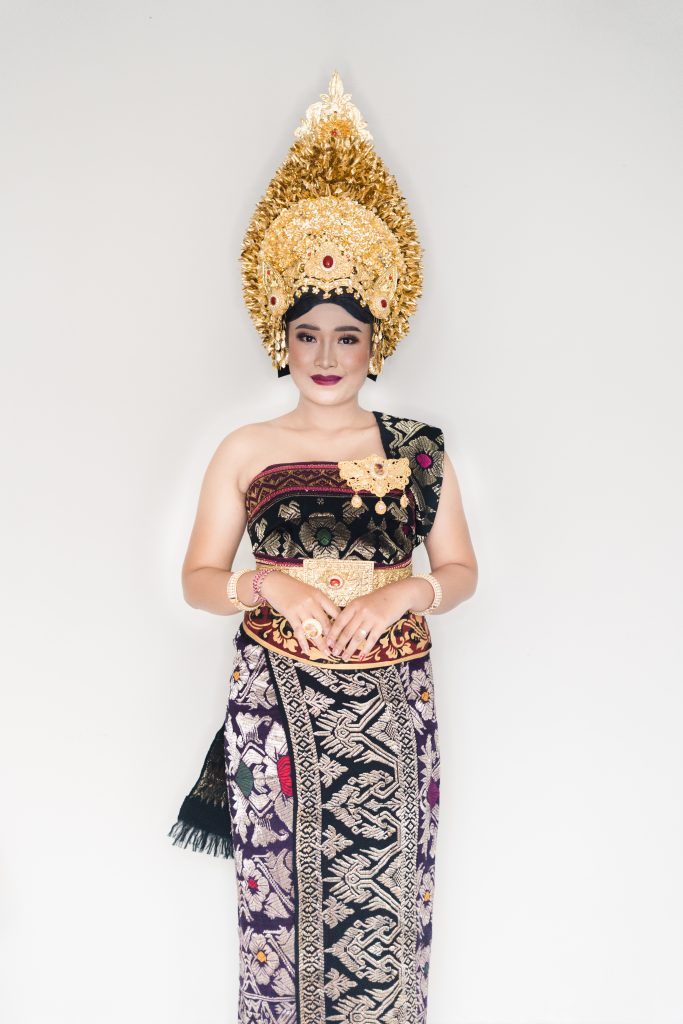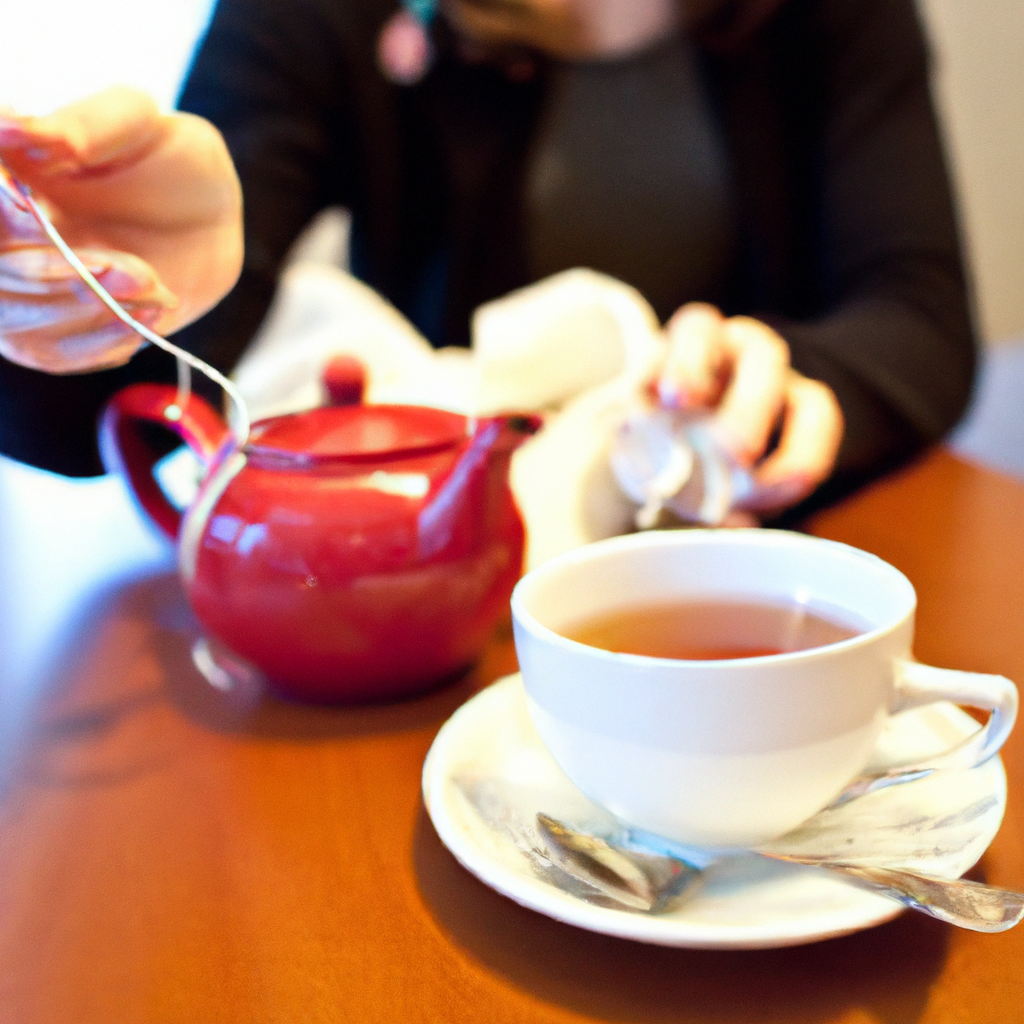Imagine yourself stepping foot in the United Kingdom for the first time, ready to embark on an exciting journey filled with new experiences. As you immerse yourself in the vibrant culture of this diverse nation, it becomes crucial to understand the cultural norms and etiquette that govern social interactions. From the art of queuing to the importance of tea-drinking rituals, this article will enlighten you on the fascinating intricacies of British customs, ensuring that you navigate through these unfamiliar waters with ease and grace.

Greetings and Politeness
Formal and Informal Greetings
When it comes to greetings in the UK, it’s important to consider the level of formality. In more formal settings, such as a business or professional setting, it is customary to greet someone with a handshake. A firm handshake and maintaining eye contact are seen as signs of respect and confidence. In informal settings or among friends, a simple “hello” or “hi” is usually sufficient.
Handshakes and Personal Space
Handshakes in the UK are quite common and expected, especially in formal situations. When shaking hands, it’s important to offer a firm grip, but not too firm, as this can come across as aggressive. Additionally, it’s important to respect personal space. In the UK, people tend to value their personal space, so it’s best to maintain a comfortable distance when engaging in conversations.
Using Titles and Last Names
The use of titles and last names is common in the UK, particularly in formal or professional settings. It is polite to address someone by their title and last name unless they specifically ask you to use their first name. For example, addressing someone as “Mr. Smith” or “Dr. Johnson” is more appropriate than using their first name unless they explicitly invite you to do so.
Saying ‘Please’ and ‘Thank You’
Politeness is highly valued in the UK, and using courteous words like “please” and “thank you” is an important part of British etiquette. It’s customary to say “please” when making a request, and “thank you” when expressing gratitude. Whether it’s asking for a favor or receiving assistance, these simple words go a long way in showing respect and appreciation.
Table Manners
Making Reservations
When planning to dine out in the UK, it’s advisable to make reservations, especially in popular restaurants or during busy times. This not only shows consideration for the establishment but also ensures you have a table waiting for you. It’s best to call ahead and provide the requested information, such as the number of guests, date, and time of arrival.
Seating Arrangements
In formal dining situations, there may be designated seating arrangements, indicated by place cards or the host’s guidance. It’s important to respect these arrangements and sit in the assigned seat. If there are no specific instructions, it’s customary to wait for the host or the most senior person to indicate where you should sit before taking your seat.
Cutlery Usage
Cutlery usage in the UK follows a specific pattern. Typically, you start with the cutlery on the outside and work your way in with each course. Utensils on the left are generally for eating, while those on the right are used for cutting or pushing food onto the fork. Remember to hold your knife and fork properly, with the fork in the left hand and the knife in the right, with the tines facing downwards.
Eating and Conversation
While enjoying a meal in the UK, it’s customary to keep conversation light and pleasant. Engage in polite small talk, such as discussing the weather, current events, or shared interests. Avoiding controversial or sensitive topics, like politics or religion, is generally advised. Additionally, maintain a moderate pace when eating and avoid slurping or loud chewing noises.
Finishing a Meal
When you have finished your meal, it’s polite to place your knife and fork together on the plate with the handles facing towards you. This indicates to the server that you have finished eating. It’s also customary to thank the host or restaurant staff for the meal as you leave the table.
Gift-Giving
Occasions for Gift-Giving
Gift-giving is an essential part of British culture, especially during special occasions and celebrations. Common occasions for gift-giving in the UK include birthdays, weddings, anniversaries, Christmas, and housewarmings. Additionally, it’s considered good manners to bring a gift when invited to someone’s home for dinner or a social gathering.
Selecting Appropriate Gifts
When selecting a gift in the UK, it’s important to consider the recipient’s tastes and preferences. Thoughtfulness rather than extravagance is valued, so putting effort into choosing a meaningful gift is appreciated. Popular gift choices include flowers, chocolates, wine, or a small token that reflects the recipient’s interests or hobbies. It’s also polite to inquire about any allergies or dietary restrictions before selecting food or drink gifts.
Gift Wrapping and Presentation
Taking the time to wrap a gift neatly and with care is an important part of gift-giving etiquette in the UK. Use quality wrapping paper or a gift bag, and add a personal touch with a ribbon or a handwritten card. Presentation is key, so ensuring the gift looks appealing and well-packaged shows thoughtfulness and attention to detail.
Presenting Gifts
When presenting a gift in the UK, it’s generally best to give it to the recipient in person. If you are attending a formal event or gathering, it’s common to present the gift to the host upon arrival. In more casual settings, it’s acceptable to hand the gift directly to the recipient and express your well-wishes or congratulations. Remember to smile and maintain eye contact as you present the gift, showing your sincerity and appreciation.
Social Etiquette
Personal Space and Queuing
Respecting personal space and queuing etiquette are fundamental aspects of social etiquette in the UK. British people value their personal space and usually prefer a comfortable distance during conversations or interactions. Avoid standing too close or touching someone unless you have a close relationship. When queuing, wait your turn patiently and maintain proper distance from others in the line.
Apologizing and Saying ‘Excuse Me’
In situations where you need to apologize or get someone’s attention, saying ‘sorry’ and ‘excuse me’ is essential. If you accidentally bump into someone or make a mistake, a sincere and timely apology is polite and appreciated. Similarly, using ‘excuse me’ when trying to get someone’s attention or asking for assistance is considered respectful and appropriate.
Punctuality and Time Management
Being punctual is highly valued in the UK, and arriving on time for social or professional commitments is expected. If you are running late, it’s considered polite to inform the person or party you are meeting in advance. Time management is crucial, so plan your schedule accordingly to avoid keeping others waiting. Mutual respect for each other’s time is an integral part of British etiquette.
Respecting Privacy and Personal Boundaries
Respecting privacy and personal boundaries is a key aspect of social etiquette in the UK. Avoid prying into others’ personal lives or asking intrusive questions. British people tend to exhibit a reserved nature, so ensuring their privacy is respected demonstrates good manners and sensitivity. Wait until someone shares personal information voluntarily before discussing personal matters.

Communication Style
Politeness and Indirectness
Politeness and indirectness are important components of communication style in the UK. British people often use phrases such as “would you mind,” “I was wondering if,” or “could you possibly” to make requests sound more polite and less direct. This style of communication allows for a more polite and considerate approach to conversations, ensuring that others feel respected and comfortable.
Use of Humor and Sarcasm
The use of humor and sarcasm is prevalent in the UK, particularly in casual settings. However, it’s important to tread carefully when using sarcasm, as it can be easily misunderstood or taken as an insult. British humor often relies on subtlety and wit, so it’s best to pay attention to the context and gauge the individual’s response before engaging in sarcastic banter.
Small Talk and Conversation Topics
Small talk plays a significant role in British social interactions, allowing individuals to establish rapport and create a comfortable atmosphere. Common small talk topics include the weather, sports, current events, or shared interests. Avoiding more sensitive topics like politics, religion, or personal matters is generally advised, particularly in initial conversations with acquaintances or strangers.
Respecting Personal Opinions
In the UK, respecting personal opinions, even when they differ from your own, is crucial. Engaging in respectful and open-minded discussions can lead to meaningful conversations and enhance understanding between individuals. It’s important to listen actively, be considerate, and avoid dismissive or derogatory remarks. Valuing diverse perspectives reinforces a culture of respect and tolerance.
Dress Code
Formal Attire
Formal attire is typically worn for special events, such as weddings, galas, or ceremonies. Men are expected to wear a suit with a tie or bowtie, while women often opt for elegant dresses or suits. It’s essential to dress neatly and conservatively, avoiding loud patterns or excessive accessories. Paying attention to the specific dress code stated on the invitation or event details is important to ensure appropriate attire.
Business Attire
Business attire in the UK conveys professionalism and respect for the workplace environment. Men generally wear suits with a shirt and tie, whereas women often wear tailored suits or dresses. It’s important to maintain a polished appearance, with well-groomed hair, clean and ironed clothes, and conservative accessories. Adhering to the company’s dress code guidelines is essential to create a professional image.
Casual Dress
Casual dress in the UK allows for more relaxed and comfortable attire. Jeans, skirts, trousers, or dresses are commonly worn, paired with casual tops or shirts. It’s important to dress appropriately for the occasion, considering factors such as the venue, dress code, and weather. While casual attire allows for more flexibility, ensuring you still look presentable and well-groomed is important.
Appropriate Use of Accessories
When it comes to accessories, the key is often “less is more” in the UK. Simple and understated accessories are generally preferred, avoiding excessive or flashy adornments. A classic watch, a tasteful necklace, or a pair of elegant earrings can add a touch of sophistication to an outfit. It’s important to consider the formality of the occasion and choose accessories that complement your attire without overshadowing it.

Public Behavior
Volume and Voice Levels
Maintaining an appropriate volume and voice level in public is important in the UK. Speaking too loudly can be seen as disruptive or inconsiderate to others around you. Conversations should be held at a moderate volume, allowing privacy to individuals nearby. Paying attention to the volume of your voice and adapting it accordingly to the environment demonstrates respect for others and adherence to public etiquette.
Queueing and Waiting in Line
Queueing, or waiting in line, is a fundamental aspect of British culture. It’s important to follow the established line and wait your turn patiently. Avoid pushing or attempting to skip ahead, as this is considered rude. It is customary to maintain personal space and avoid standing too close to others while waiting. Respecting the queue and waiting in an orderly manner showcases good manners and respect for others.
Public Transportation Etiquette
When using public transportation in the UK, there are several etiquette guidelines to keep in mind. Offering your seat to someone who needs it, such as the elderly, pregnant, or disabled individuals, is considered polite. Keep noise levels to a minimum, respecting the privacy and comfort of fellow passengers. Additionally, it’s important to follow any rules or guidelines provided by transportation authorities to ensure a smooth and pleasant journey for everyone.
Public Displays of Affection
Public displays of affection (PDA) in the UK are generally kept modest and discrete. While small gestures like holding hands or a quick peck on the cheek are generally acceptable, more intimate displays are best reserved for more private settings. It’s important to be mindful of your surroundings and the comfort level of those around you when engaging in any form of PDA.
Manners in Social Settings
Hosting and Being a Guest
Being a gracious host or guest is an essential part of social etiquette in the UK. As a host, it’s important to make your guests feel welcome and comfortable. Offering refreshments, providing seating arrangements, and engaging in polite conversation are all crucial elements. As a guest, it’s important to arrive on time, bring a thoughtful gift, and express gratitude for the hospitality extended to you.
Offering and Accepting Drinks
When socializing in the UK, offering or accepting drinks is a common gesture. If you’re hosting, offer your guests a variety of drink options, including non-alcoholic alternatives. When accepting a drink, it’s polite to express your thanks and enjoy it without rushing. If you prefer not to drink alcohol, it’s acceptable to politely decline and request an alternative beverage.
Table Conversation and Topics to Avoid
During social gatherings or meals, engaging in polite and enjoyable table conversation is important. Light-hearted topics such as hobbies, travel, movies, or shared experiences are often safe choices. However, it’s generally best to avoid controversial topics like politics, religion, or personal matters. Respectful conversations that encourage inclusivity and build connections are always appreciated.
Thanking the Host
When leaving a social gathering, it’s customary to thank the host for their hospitality and express your gratitude for a pleasant time. A simple, heartfelt thank-you can be extended in person, through a handwritten note, or via a thank-you message. Showing appreciation for the effort put into hosting the event is a kind gesture and reinforces good social etiquette.

Saying ‘Sorry’ and ‘Excuse Me’
Apologizing in Various Situations
Apologizing is a key aspect of British etiquette and is used in various situations. Whether you accidentally bump into someone on the street, make a mistake, or inconvenience someone unintentionally, saying ‘sorry’ is a polite response. Acknowledging your actions and showing genuine remorse helps maintain harmony and respectful interactions with others.
Navigating Crowded Places
In crowded places, it’s common to unintentionally brush against someone or accidentally get in someone’s way. In such situations, saying ‘excuse me’ is the polite way to navigate through the crowd. This phrase shows consideration for others and allows for a smoother flow of movement in busy environments.
Interrupting or Getting Attention
When it’s necessary to interrupt or get someone’s attention, using polite phrases like ‘excuse me’ or ‘pardon me’ is appropriate in the UK. These phrases convey respect for the person’s time and space and indicate that you would like to speak with them. Waiting for an appropriate pause in the conversation before interjecting demonstrates good manners and courtesy.
Pardoning Oneself
In situations where you need to leave a conversation or an activity briefly, it’s polite to say ‘excuse me’ or ‘pardon me’ to indicate that you are temporarily excusing yourself. This allows others to be aware of your intended departure and prevents any misunderstanding or assumption that you are rudely abandoning the engagement. Being considerate of others’ time and acknowledging your departure shows respect and good etiquette.

